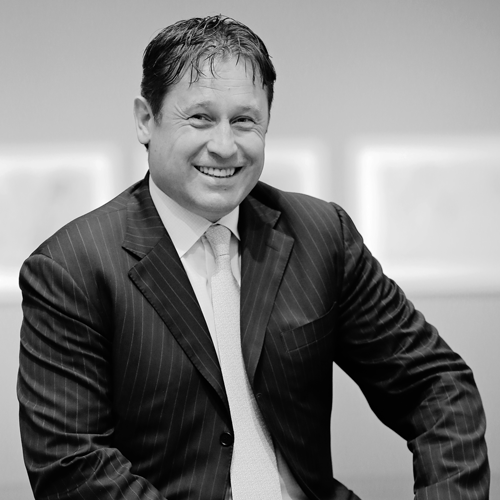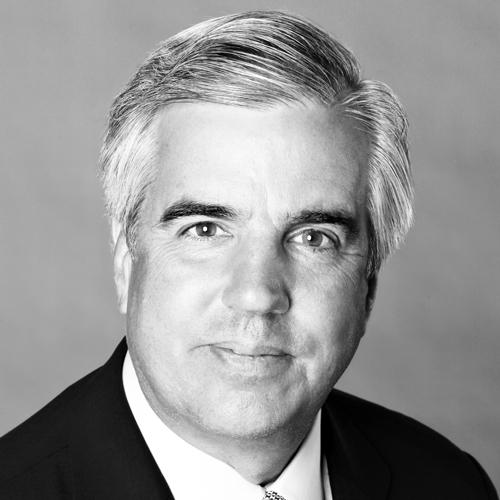
Matt Preschern has spent more than two decades in marketing roles at global companies, including UPS and IBM Global Business Services. When he joined HCL Technologies as its executive vice president and chief marketing officer in 2014, he undertook the challenges of unifying a global brand during a time of extensive company growth, and when digital technologies were and are changing the way businesses market. In this interview with Profile, he shares the challenges and opportunities he has faced, as well as his vision for becoming a marketing leader in the twenty-first century.
What do you see as the marketing agenda for 2016 and beyond at HCL Technologies?
For marketing in all industries, the digital revolution is fundamentally changing how business is done and customers are engaged. Take mobile, for example. This year, mobile devices became the primary source of information and entertainment for most global consumers. When you take the prevalence of mobile and add to it the emergence of the Internet of Things, big data analytics, and automation, you have an environment in which companies are breaking traditional silos to create unified customer experiences. My focus with HCL’s marketing team is to leverage the power of digital technology and align the marketing function to create a powerful, unified, experience-oriented brand. This is a big undertaking, but a necessary one given HCL’s fast growth rate and our current presence in thirty-two countries.
How will HCL Technologies’ marketing implement this agenda?
We will do it via five key initiatives:
- Creating a consistent omnichannel experience—HCL will undertake more personalized, integrated, persona-based, real-time communications and campaigns. We will also emphasize translating persona insights into effective go-to-market strategies that will leverage the power of social networks and mobile marketing. One example is the integrated data-driven, persona-based campaign we are running across all channels and customer touch points for North American SAP S/4HANA prospects. The campaign is in the early stages, but the results are promising. In two months, traffic to our website has doubled and we have seen ten times the number of content downloads.
- Driving content-centric engagement—“Content is king” is the mantra of digital marketing, and HCL has a dedicated and talented content team to develop the strong portfolio that powers our omnichannel campaigns. We expect HCL’s marketing efforts to engage our customers and prospects through learning and education rather than through informational advertising. I believe this is the most effective way to create a valuable brand in the mid- to long-term, especially with B2Baudiences.
- Establishing tech-driven marketing—With technology changing the face of marketing, we naturally want similar technologies underpinning all marketing processes from concept to campaigns, capturing lead and funnel attribution, integrating dashboards to view sales leads from first to final touch-point, and enabling decisions backed by data insights. The most important element in this approach would be data-driven insights and predictions that make attribution, influence, and measurements more effective.
- Aligning marketing structures to business and its ecosystem—HCL marketing prides itself on strong operations that convert omnichannel campaigns into tangible business outcomes. I firmly believe that marketing needs to go beyond building a brand to become a key driver for business growth.
- Driving a culture of experimentation—Despite the gains and changes that technology has brought to marketing, the human touch is what gives the most successful brands their comparative advantage. At HCL, we want to pinpoint and empower the human element that makes these marketing campaigns successful. We do that by hiring the best marketing talent and then giving them the autonomy to experiment in a culture of design-thinking. For us, this is the difference between good programs and great campaigns that engage, inspire, and innovate. This is also how we attract and preserve our internal brand ambassadors in the age of millennials
How will you implement this strategy in your global company?
For any company operating in thirty-two countries, running an integrated, cohesive marketing structure that has a technological base will require a number of steps. My first undertaking has been to evolve the global brand from “promotional” to “conversational.” The next phase will see the brand become influential in our tech-driven, digitally connected world. We are also working on the nuances involved in preserving the universal values of a core brand while also running successful campaigns that local customers can identify with. I have tasked my team with using disruptive technologies to deliver personalized marketing to globally connected customers. My underlying daily question for my team is, “How can we build a global brand that connects with local audiences?” This is no easy task, but our global impact has been impressive and is driven by our commitment to hire local talent.
HCL’s partnership with Manchester United has been thoroughly discussed; how does it fit into your marketing agenda?
From the start, our partnership with Manchester United has become an important constituent in our ecosystem engagements with influencers, customers, and partners across the globe garnering valuable insights between the worlds of business and sports. When we officially launch Manchester United’s club app to help the group engage with its 659 million followers, we will have an excellent showcase of HCL’s digital transformation capabilities.
What are some of the biggest ways that a marketing department showcases its value to an organization and to a CEO?
Philip Kotler famously said, “The art of marketing is the art of brand building. If you are not a brand you are a commodity.” This is especially true in the services industry. For companies that believe in the value of a brand to offset commoditization, marketing is well-placed to play a pivotal role not only in leading the way in implementing innovative technology (such as HCL marketing is), but also in creating a brand that enables a business to articulate its values and differentiators.
Now that marketing is in the boardroom, can you describe your experience in working with other function leaders and the CEO?
One of the key tenets of our messaging is “business is a team sport.” I really believe that this is a powerful concept. To thrive in the new digital reality, you need the CEO, CHRO, CFO, COO, CIO, and, of course, the CMO to look beyond the lines that separate them and to focus on driving programs and experiences that operate across the ecosystem. For example, HCL marketing is working very closely with the HR team to drive incredible employee engagement. We are also working with the COO on branding and engagement in delivery centers. At a higher level, all of the company leaders have undertaken a very close working relationship to get to the goal of becoming and servicing a twenty-first century enterprise.
How do you envision the future of your role at HCL?
When I joined HCL toward the end of 2014, the company had around $5.1 billion in revenues. Today, we are a $6.2 billion company with close to 105,000 employees globally. With double-digit growth in constant currency, we are clearly in the category of fast-paced, high-growth global tech company. My role has consistently evolved from leading a respected support organization to headlining some of the most important initiatives for HCL, including our partnership with Manchester United. The future for HCL and our industry in general is bright, and I sincerely hope I will be able to continue playing a significant role in various aspects of HCL’s growth.
Outside of the office, what do you like to do to maintain a good work/life balance?
My family is my strongest support system, and I make sure I am there for their most important things. I am a soccer coach, and I also do positive coaching for kids in our community. I derive immense joy out of it, and this helps me tackle the pressures and demands at work.
What’s one story or lesson that you would share with your younger colleagues?
Keep redefining “success” and “performance.” That is one tip to keep pace with this ever-changing world. Also, build a team who is empowered to imagine, dare, and recreate. This is one sure thing to let you lead with purpose.

